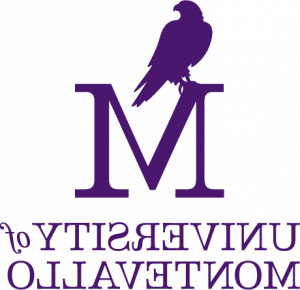The Immigration and Nationality Act makes the assumption that F-1 students are here for the primary purpose of attending school. Employment in general is restricted. The following employment possibilities exist for F-1 students with proper authorization from the DSO.
On Campus Employment
Undergraduate and graduate students may be employed on-campus if such employment will not interfere with the student’s ability to carry a full program of study. On campus employment must be authorized on the I-20 form prior to beginning employment. Students may work up to 20 hours per week while school is in session and fulltime (40 hours per week) during school holiday breaks. Students do not need to spend a particular period of time in F-1 status before on campus employment can begin. Students are required to obtain a Social Security card from the Social Security Administration before beginning on campus employment. A copy of the Social Security card is required by the DSO, located in the Registrar’s Office.
Curricular Practical Training (CPT)
Curricular practical training (CPT) is available to students who are in active status, enrolled fulltime in classes, and have been attending the University of Montevallo for one academic year. However, an exception may be granted for those graduate students enrolled in a degree program that requires an internship in the first year of study. CPT is only available to F-1 students when it serves an integral part of their established curriculum or is required to meet specific degree program requirements: The student must receive course credit for the training. Students who plan to register for a practicum or internship, whether paid or unpaid, must be authorized by the DSO for CPT prior to beginning the course. There is no restriction on the number of hours a student can work per week while in CPT. However, it is recommended that undergraduate students limit themselves to 20 hours a week of CPT during the fall and spring semesters. Part-time CPT (20 hours or less per week) does not impact eligibility for Optional Practical Training (OPT). However, fulltime CPT (40 hours a week) reduces the number of hours a student may be granted for OPT.
Employment for Severe Economic Hardship
A student may qualify for off-campus employment only if he or she has been in F-1 status for at least one academic year and can demonstrate an unforeseen change in financial circumstances, which has arisen after admission to the U.S. and which makes it necessary to work for essential financial support. The student must apply to the United States Citizenship and Immigration Services (USCIS) through the DSO and convince both parties that all conditions for employment have been met. If the application is approved, the USCIS will issue an Employment Authorization Document (EAD). The student is authorized to accept off-campus employment only after the USCIS has issued the EAD. Students may work up to 20 hours per week while school is in session and fulltime during school holiday breaks.
Post-Completion Optional Practical Training (OPT)
A student may be authorized for OPT for a maximum period of 12 months following graduation. Employment must be directly related to the student’s academic studies. Applications and instructions for OPT are available from the DSO in the Registrar’s Office. Due to slow processing times, students should apply 90 days prior to graduation.
Eligible F-1 nonimmigrant students with STEM (science, technology, engineering and mathematics) degrees may apply for a 24-month STEM OPT extension. Interested F-1 students must apply for and receive an Employment Authorization Document (EAD) from the United States Citizenship and Immigration Services (USCIS). All STEM extensions require approval by the DSO prior to submitting an application to USCIS. The list of STEM degrees and requirements for employers and students can be found on Study in the States website:
Study in the States – STEM OPT
Applications and additional instructions for all employment options listed above can be obtained from the DSO in the Registrar’s Office.
IMPORTANT! Many types of employment are not available to F-1 students. Jobs performed in exchange for free room and board are not authorized unless the student has permission for off-campus employment due to economic hardship.
UNAUTHORIZED EMPLOYMENT! When a foreign student accepts employment that is unauthorized, such actions constitute a serious violation of federal law and regulations. The Immigration Reform and Control Act of 1986 makes it illegal for an employer to hire a foreign student not authorized for employment. It is a violation of status for an alien to accept employment without authorization. The foreign student who ignores the regulations faces serious consequences.
